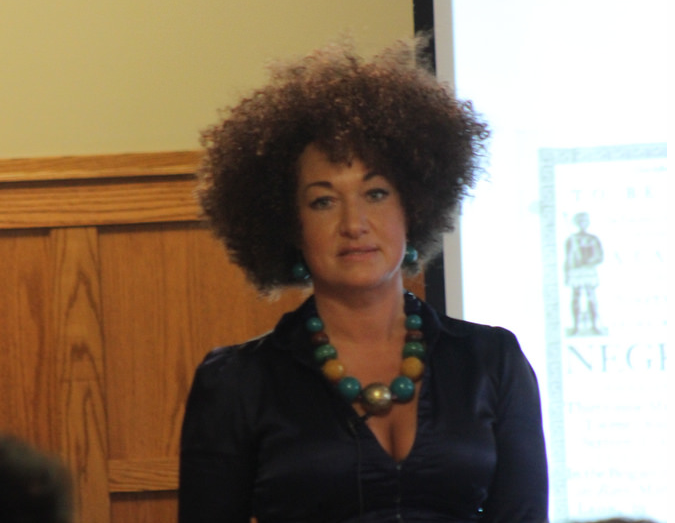Some Thoughts on Racial Identity

By Dr. Henry Flores, NewsTaco
I think we owe Rachel Dolezal thanks for bringing to the forefront an issue that was going to rear its head sooner or later—the complexity of racial identity in America. The notion that race is a social construct has been discussed ad infinitum among academics for a very long time. [tweet_dis]Race was constructed at the advent of the era of slavery in order to justify that horrible institution.[/tweet_dis] People who were not considered “white” were considered less than “white” to justify unequal treatment. Religious leaders sought biblically based arguments to justify “racism;” scientists concocted all sorts of “biologically” based arguments to justify “racism;” and, businessmen argued that lesser races could be exploited as a very cheap and replaceable source of labor. All these foresightful individuals and groups, however, did not foresee the demographic complexity we have today in American society.
It’s not simply Black and White!
[pullquote][tweet_dis]If you want to know how complicated the race issue is, just ask any group of Latinos the question “what race are you?[/tweet_dis][/pullquote]We don’t have to relive the amorous adventures of our Founding Fathers (hmmmm) in order to understand that sooner or later stuff happens and folks of different skin pigmentations are going to procreate. But they did and these relationships have grown to such an extent that the United States Bureau of the Census has now included a “Mixed Race” category for all these folks. If you want to know how complicated this issue is just ask any group of Latinos the question “what race are you?” You’ll get all kinds of responses including White, Black, Mixed Races, Native American, Asian, Mexican, Colombian, Puerto Rican and “I haven’t the slightest idea.” I like the ones some of my students use “I belong to the human race!” This makes perfect sense to me because if you knew anything about biology you would understand there is only one race—the human race.
What everyone calls “black or white people” are social constructs. There is no such thing as a black person unless you painted that person the real color black, which by the way in chromatics is the absence of color. So, technically, if you call a person “black” you are insinuating they have no color at all! The skin color of humans is really some variety of “brown.
But this does not mean that everyone is a Mexican! That would be something because then you could claim that one was more Mexican than someone else based on how “brown” they were.
Racial Identity
Seriously, though, the Dolezal Affair is about a white woman who claims to identify as an African American because she has lived that experience and has related to Black culture since she was a little girl even when she lived as a white person. The reaction to her situation has been mixed with some saying that this is a clear example of “white privilege” where she has appropriated African American culture and can leave it behind whenever she wishes. Her civil rights record has gone unchallenged because she has always been at the forefront of that struggle in her community.
From a racial identity perspective Ms. Dolezal’s situation raises some interesting questions. For instance, when can one identify with any racial or ethnic group? How about African Americans who are Hispanic choosing to identify one way or the other? I know of African Americans who have Latino origins but have chosen to identify as African Americans and vice-versa, Latinos who have African American origins and choose to identify as Latinos. How about all those millennials who identify as mixed race? Can they identify with whichever racial or ethnic group they wish? Why not? It’s their choice isn’t it? How about Latinos who are White? Huh! Huh! Are these folks “really white?” And, what does that mean anyway?
Choosing a Racial Identity
What I like about this discussion is that one can simply choose to be whatever race or ethnic group they wish if they feel they have lived that experience. Of course, some groups will be more accepting than others because if an African American chooses to identify as White, I don’t think they will be accepted by White people. I’m not sure what African Americans would think of a situation such as this. The bottom line is this. Who really has the right to say what race one is; oneself or society?
Henry Flores, PhD, is the Distinguished University Research Professor, Institute of Public Administration and Public Service; Director, Masters in Public Administration (MPA); Professor of International Relations and Political Science at St. Mary’s University. He is the author of Latinos and the Vorting Rights Act: The Search for Racial Purpose.
 Latinos and the Voting Rights Act: The Search for Racial Purpose.
Latinos and the Voting Rights Act: The Search for Racial Purpose.
[Photo courtesy of The Easterner/Flickr]

